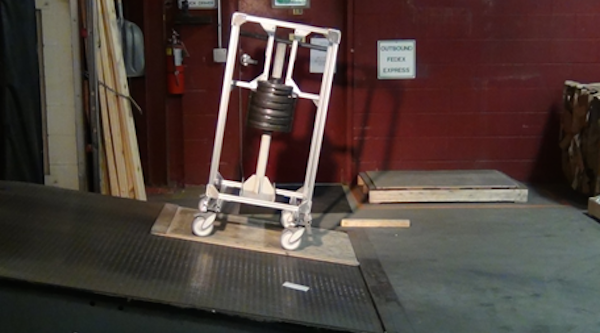Meeting regulatory standards is an integral part of any product’s design and development and even more so when it comes to medical equipment. Sometimes, however, understanding all the intricacies of the standards, what they cover—safety, risk, design methodology, parts performance and so on—and verifying compliance can be a bit of a headache.
When considering what medical cart to use with your equipment, it’s important to remember that while a standard “off-the-shelf” cart may meet an industry standard like IEC60601-1 3rd edition on its own, it may no longer be in compliance after you load that cart with your equipment. This means you’ll either need to cross your fingers and hope you meet the standard or find a separate company who can help verify that your end-user product meets standards—an added step that can cost you additional time and money.
With a custom medical cart, that regulatory compliance is part of the overall concept and production process. As your cart is being created, the weight of your equipment, placement of the shelves, how it’s loaded and other design parameters, like an articulating arm, are accounted for in terms of regulatory requirements. If required, a prototype of your custom cart is fully tested to the desired standard by a certified testing lab such as MECA to ensure the compliance reports you need are on file. The image at the top of this post shows an example of one type of compliance test. In this case, the test is for IEC60601-1, Stability and Transportability section 9.4.2, which indicates how the cart responds when positioned on a ten degree slope.
Don’t Forget About the Packaging
When thinking about compliance, don’t forget about your product packaging. You want your cart to get to the end-user all in one piece, don’t you?
When considering cart suppliers, check to see if they work with a certified International Safe Transit Association (ISTA) 1A and 1B packaging company like Wisconsin Packaging. The ISTA Standard 1A relates to packaged products 150 pounds or less, while the 1B Standard relates to products weighing more than 150 pounds. Both standards measure the strength and robustness of the product and package combination to withstand transport hazards. By working with such a cart manufacturer, you can be certain that your equipment is packaged in a way that ensures that it’s fully ready for shipping and handling.
In the next post of our “Five Benefits of a Custom Medical Cart Solution” series, we’ll discuss the flexibility to make quick and easy revisions to custom cart designs as your customers’ needs change.
If you have questions about the 60601-1 Standard, please contact us at any time. We’ll be happy to help.


